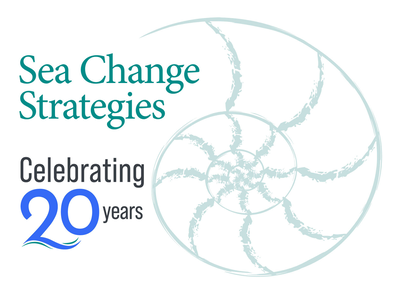Why The Facts Are Not On Your Side – and What To Do About It
Earlier this month, the Communications Network and Spitfire Strategies kicked off the Science of Communication, a series of in-person talks, webcasts, and webinars designed to examine communications through a scientific lens.
Our co-conspirator and friend Katya Andresen, chief operating officer and chief strategy officer of Network for Good, wrote about the first presentation from Dan Kahan, a leading thinker on cultural cognition whose work I have been following for several years.
This is a post about “cultural cognition.” I know what you’re thinking. But wait! Don’t stop reading! You need to read this post.
If you work for a good cause in this polarized United States, this is vitally important. Cultural cognition is simply a way of describing the very human habit of conforming to your group’s core beliefs when confronted with disputed matters of fact. The guru on this topic is Dan Kahan, and he shows how our opinions about everything from climate change to gun control aren’t shaped by facts as much as our cultural identity – which we then bolster by cherry picking information that supports that collective sense of self. This is why you could put the same set of data in front of people on opposite extremes of controversial issues, and they’d both come out of that experience only more entrenched in their positions.
I got introduced to these ideas by my friend and colleague Alia McKee, who wrote about cultural cognition here , and so I jumped at the chance to hear from Kahan himself. Kahan describes the groups with which we align ourselves according to the following continua, which Alia describes this way:
- Individualists, who think that society should mostly let each member do his or her own thing. At the other end of that spectrum are Communitarians, who think we all are in it together and society should operate more as a whole rather than a bunch of independent members.
- Hierarchists, who prefer a society with well-identified class and authority structures and a firm and predictable status quo. At the other end of that spectrum are Egalitarians, who prefer a more open society with fewer pre-determined class and authority structures and a less rigid status quo.
Kahan tells us that these characteristics are better ways to predict people’s positions than the traditional demographics of political party, age and education. For example, communitarians and egalitarians show more concern about climate change because the solutions challenge the status quo and will require a joint response by society. Individualists and hierarchists are much more likely to be climate change skeptics, because they believe pro-environment policies lead to restricted commerce and markets, which they equate with human excellence.
As Kahan explained, “This is motivated cognition. Neither group is anti-science. They process information that matches their group. You can survey people in the same locale, and depending on their view, they will describe how hot (or not) the weather has been. They feel temperature differently. People are all like pollsters engaged in biased sampling.” The reason this matters to you is that if we accept that cultural values trump facts (which I do), then your efforts to persuade with information and experts won’t work.
In fact, Kahan has showed people will only listen to experts who bolster their world view. Remember: People take their cue about what to think and do “based on the cheers and boos of the home team,” says Kahan. So don’t be the opposition.
Here are three ways Kahan shares to step out of our polarized approach to issues.
1. Stop trying to convert people. You can err to a much greater extent by being too confident and assertive than by being too cooperative.
2. Present information that confirms, not threatens, values. Group ties motivate people. Find a common value that unites everyone around an issue. It may be local pride or energy independence or safety. Focus on the tribe to which we all belong and tie the issue to that frame.
3. Make sure a diverse set of experts speaks to the evidence. Picking partisan folks from the extreme sides of the cultural cognition spectrum won’t persuade people on the other side. Values polarize. Find messengers to whom your audience relates if you want them to listen. Kahan concluded by urging organizations to try these approaches and share results. I agree. I also I believe fervently that there has to be a better way to bring people together.
So let’s create a community of knowledge that does just that. What can you draw from cultural cognition that unites people behind your cause? And how can the rest of us get on board with this constructive way to make change?
